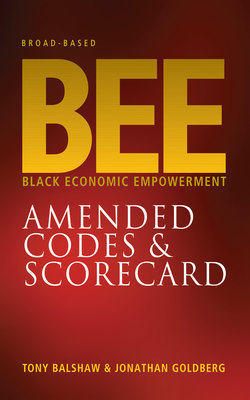Читать книгу Broad-Based BEE - Jonathan Goldberg - Страница 37
На сайте Литреса книга снята с продажи.
TRUST – THE “SUPERGLUE”
ОглавлениеTrust is an important value in business and other systems and provides the glue that binds people together. Trust means that one can rely on and have confidence in the truth, worth and reliability of a person or thing. It is essential that broad-based BEE stakeholders trust one another and those in business leadership positions so that they can work together collaboratively.
Trust implies people have the freedom to develop, grow and become unique. Trust also implies risk – the risk that someone’s actions might not be congruent with the other person’s values and that such actions could prove to be damaging.
The Chinese maintain shinyung, or trust, as the superglue that binds clans and groups. It is absolute, and Chinese families and clan elders apply strict rules of trust. In order to progress and become a fully-fledged member of the family business you had to demonstrate your trustworthiness repeatedly – it was not automatically bestowed on family members. Deep commitment is required, as well as serving a long apprenticeship, during which time the next generation needs to demonstrate their abilities and absolute shinyung.
Whilst it is relatively easy to speak about trust, in practice trust is difficult to implement. Within many organisations there is an element of distrust between people, often caused by individuals purposefully trying to achieve their own individual goals rather than those of the business.
A broad-based BEE initiative has an inherent ability to create distrust within a business and make it difficult to operate effectively. Many businesses will need to introduce processes that serve to eliminate undesirable reactions and build trust within the organisation.
Trust is enhanced by addressing conflict, having a shared vision, establishing appropriate communication, decision-making and governance structures, sharing information and avoiding secretiveness, as well as by ensuring appropriate sanctions in circumstances where trust has been breached.
As the ownership structure and business get more complicated, with more people becoming involved in ownership, business governance and decision-making, the informal start-up systems and structures invariably need to give way to more disciplined and professional structures that enhance trust and communication.
The entire broad-based BEE transformation process stands or falls on the capacity of stakeholders to build trust and foster collaboration. Almost every aspect and solution will require broad-based BEE parties to converse and discuss issues together and collaborate across “boundaries”. Trust grows
•when people have confidence in one another’s competence;
•when there is congruency between what a person says they will do and what they actually do;
•when behaviour is consistent, predictable and not erratic;
•when compassion, empathy and fairness guide people in their interactions, keeping the interests of all stakeholders in mind – particularly those who will be affected by the broad-based BEE transformation process, as well as
•when communication is clear, timely and consistent.
